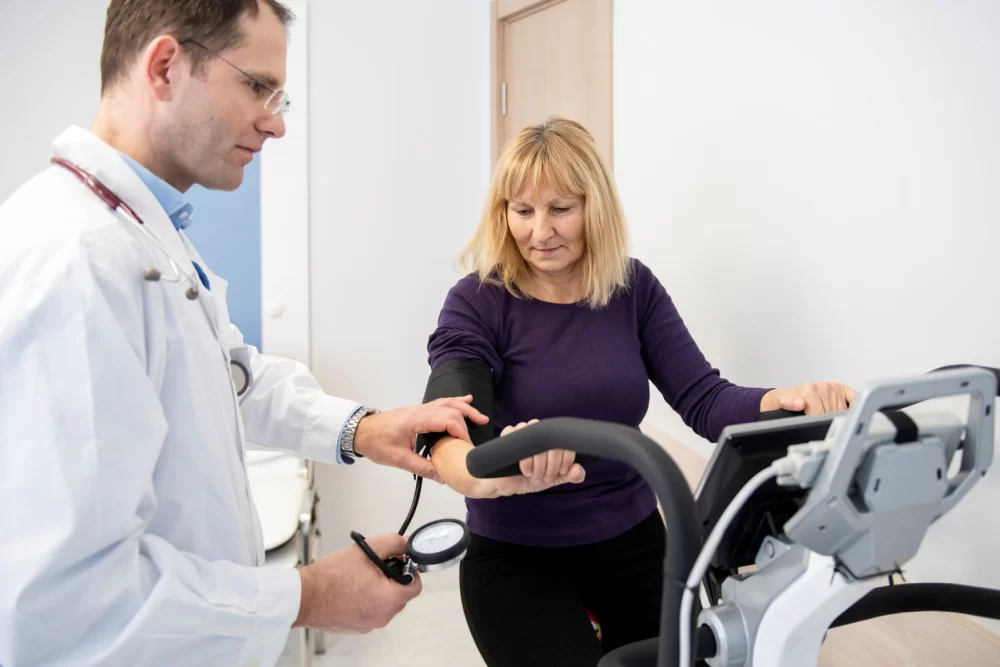- understanding-stress-test
- preparing-your-body-for-stress-test
- diet-and-medication-guidelines
- clothing-and-physical-preparation
- mental-preparation-and-anxiety-management
- what-to-expect-during-and-after-test
- importance-of-follow-up-and-support
Understanding What a Stress Test Is
A stress test, also known as a cardiac stress test, is a diagnostic tool used by doctors to assess how well your heart functions under physical stress. This test helps detect coronary artery disease, arrhythmias, and other heart-related issues. It typically involves walking on a treadmill or pedaling a stationary bike while your heart rate, blood pressure, and electrocardiogram (ECG) are monitored.
Knowing the purpose and procedure of the stress test is crucial as it helps you prepare both mentally and physically, ensuring the test results are accurate and reliable.

Preparing Your Body for a Stress Test
Proper preparation can influence the quality of the stress test results. Experts recommend getting a good night's sleep before the test and avoiding strenuous activities 24 hours prior. It's important to stay hydrated, but limit caffeine intake on the day of the test, as it can affect heart rate and blood pressure measurements.
Additionally, avoid smoking at least three hours before the test, as nicotine can constrict blood vessels and skew results.
Diet and Medication Guidelines Before the Test
Doctors often provide specific instructions regarding food and medication before your stress test. Generally, you should avoid heavy meals within two hours before the test and stick to light, balanced foods. Medications, especially those affecting heart rate such as beta-blockers, may need to be paused or adjusted, but always consult your healthcare provider first.
This personalized guidance ensures your body is in an optimal state for accurate test outcomes without compromising your health.
Clothing and Physical Preparation Tips
Wear comfortable, loose-fitting clothing and supportive athletic shoes suitable for exercise. Avoid jewelry or accessories that may interfere with ECG sensors. Arriving early allows you to relax and familiarize yourself with the testing environment, reducing stress and ensuring you follow pre-test instructions thoroughly.
Physical readiness goes hand-in-hand with mental preparation to help you perform your best during the test.
Mental Preparation and Managing Anxiety
It's natural to feel anxious before a stress test. Understanding the procedure and what to expect can significantly reduce stress. Practice deep breathing or mindfulness techniques to stay calm. Remember, the medical team is there to support you and monitor your safety throughout the test.
Some patients find it helpful to share their concerns with their doctor beforehand, which can tailor the approach and provide reassurance.
What to Expect During and After the Test
During the test, your heart rate and vitals will be continuously monitored. The intensity of exercise will gradually increase to safely push your heart. The test usually lasts 10-15 minutes, followed by a cool-down period. You may experience mild discomfort like shortness of breath or fatigue, which is normal.
After the test, rest and hydrate. Your healthcare provider will discuss the results and potential next steps. Prompt follow-up is essential to address any findings and adjust your care plan accordingly.
The Importance of Follow-Up and Support
Following the stress test, collaborating with your healthcare team ensures your heart health is effectively managed. Whether the results indicate a clean bill of health or highlight concerns, ongoing monitoring and lifestyle adjustments are vital. For assistance with heart health products or services, visit HeartCare Hub for trusted recommendations.
Empowering yourself with knowledge and support helps you maintain a healthy heart and a better quality of life.






















CT Heart Scan
heart testing near me
8707 Complex Dr, San Diego, CA 92123, USA